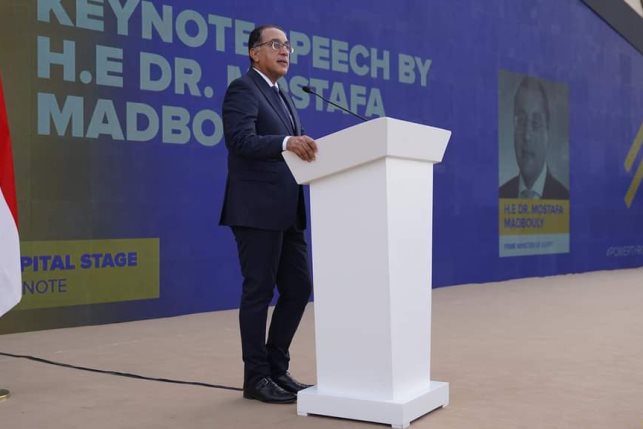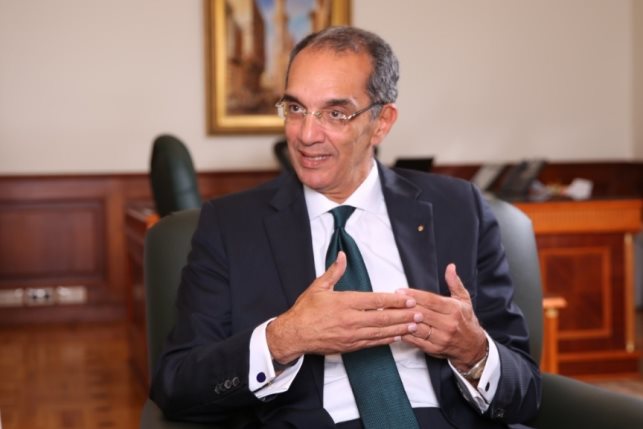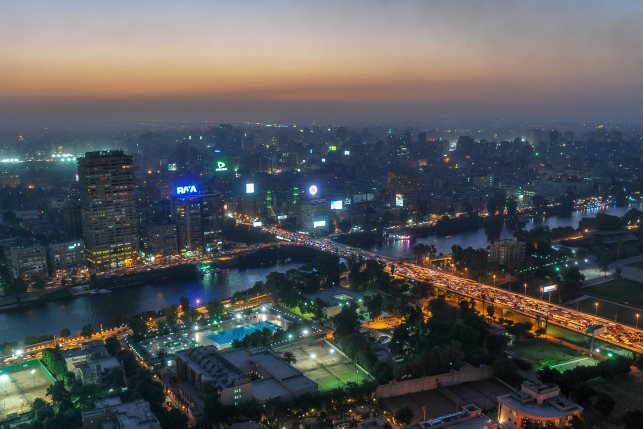Housing and Development Bank: On Track to Being at the Forefront of Egypt’s Commercial Banking Scene
Hassan Ghanem, Chairman and Managing Director of HDB, talks Egypt’s economic reform program and elaborates on the bank’s endeavors towards achieving financial inclusion

We sat down with Hassan Ghanem, Chairman and Managing Director of Housing and Development Bank (HDB), where he got to share his opinions on Egypt’s economic reform program and elaborate on the bank’s endeavors towards achieving financial inclusion and digital transformation.
With an extensive banking experience of nearly 34 years under his belt, Ghanem undertook a number of strategic roles spanning across corporate finance, structural finance, banking operations, and banking services for multinational companies.
What is the HD Bank’s vision and strategy for the coming period?
HD Bank’s vision is to be at the forefront of commercial banks. Our strategic plan hinges on four pillars:
•Expansion and diversification in terms of the development and provision of distinctive banking services that meet the needs of all customer segments.
•Geographical expansion across Egyptian governorates through increasing the number of branches, expanding the reach of ATM networks, and enhancing existing branches and headquarters in line with the tremendous advancements that the Egyptian banking sector has been recently witnessing.
•Digital transformation through providing digital banking services, while working on their continuous development.
•Raising the efficiency of customer service and developing our employees to facilitate banking transactions for our customers and provide them with the best levels of service.
How did government and Central Bank initiatives contribute to enhancing financial inclusion and digital transformation? How did HD Bank participate in these initiatives?
Financial inclusion and digital transformation are at the forefront of the Central Bank’s priorities, and it has successfully developed and implemented an integrated plan to achieve both goals.
This is clearly evident in the recent policies and programs launched by the Central Bank under the leadership of Governor Tariq Amer. The enhancement of financial inclusion has been targeted through a number of supervisory directives.
This has played a major role in the country’s economic growth, and paves the path towards financial stability.
It also ensures that financial institutions develop their products and services to accommodate the full spectrum of customer segments, while providing secure financial management opportunities.
Moreover, given the ever changing technology landscape, the Central Bank issued regulations governing the provision of electronic payment services, to help support, simplify, and secure electronic payments for individuals and increase usage rates.
HD Bank believes in the importance of reinforcing financial inclusion and digital transformation, as they play a pivotal role in strengthening the banking sector, enhancing its stability and security, and bolstering its role in comprehensive economic growth.
The bank has been diligently pursuing geographical expansion to ensure proximity to customers, especially in places where banking services are not widely available. There are currently 100 branches throughout Egypt, with 10 new branches opened in 2020.
HDB also pays special attention to designing products and services that are compatible with the needs of all customer segments, including women, pensioners, children, and youth, while spreading awareness about the importance of savings.
We also focus on providing support and financing schemes to small and medium enterprises (SMEs), which are great contributors to the economy.
In line with the Central Bank’s policy, HDB has adopted an ambitious plan to transition to a digital society. This is evident in our diversified portfolio of electronic services, which include internet banking, mobile banking, electronic wallet services, QR code activation through “Feloosy Phone Wallet”, as well as an expanded ATM network.

Given the Covid-19 crisis, how was HDB able to achieve positive results in Q3 2020?
This is on account of the procedures and policies issued by the Central Bank aimed at alleviating the severity of the crisis, not to mention HDB’s professional executive management team, board of directors, and employees, who helped the bank maintain a strong financial position.
Considering the Central Bank’s ATM expansion initiative, what is HDB’s plan to spread ATM machines across the country?
We plan to increase the number of ATM machines throughout Egypt. HDB currently has 320 ATMs deployed, with an increase of 30 percent in 2020, and we’re targeting to reach 400 in 2021. Additionally, we are proud to announce that we have begun the installation of 25 Vocalized ATMs to facilitate use for differently abled individuals.
How was HDB able to achieve remarkable growth in retail banking services during 2020?
Retail banking services achieved high growth rates during 2020 as a result of an ambitious strategy which intends to place HDB at the forefront of commercial banks by way of developing its products and services. The development plan was based on several pillars:
•Providing an array of new banking products and services compatible with the needs of all customer segments.
•Implementing a comprehensive plan for digital transformation, while staying up to date with changes in financial technology, and expanding and developing digital banking services. •Increasing the number of branches and ATMs.
•Expanding the development and issuance of payment cards.
•Providing development and training for the retail banking sector and related branches.
•Changing preconceived notions of HDB and reintroducing customers to the bank’s retail banking products and services.
How did HDB keep up with the government’s plan to transfer institutions to the New Administrative Capital, in line with the Central Bank’s strategy?
HDB is preparing to be one of the first banks present in the New Administrative Capital, in line with the state’s directives to expedite the establishment of bank headquarters in time with the government’s transition, given the great importance it represents in supporting the Egyptian economy in the coming period.
HDB’s headquarter in the New Administrative Capital was designed according to the latest engineering, technical, and technological advancements.
Construction work commenced in October 2019 and includes the administrative headquarters of the bank and its companies in addition to a main branch, with a total area of 35,000 square meters. The building is expected to be complete and ready to operate at full capacity in 2021.
Given that HDB played a pioneering role in the field of urban development since its inception, how was it able to transform into a commercial bank and achieve a competitive status in the banking market?
HDB succeeded in playing a pioneering role in the Egyptian banking market since its inception, which is evident through its effective contribution in major economic and real estate projects, while managing to gain the confidence of the public during its long 40 year legacy.
I’d like to stress that the main factor paving the way for our transformation into a comprehensive commercial bank is HDB’s success in gaining the confidence of its customers.
HDB managed to fulfill the dreams of thousands of families through its housing projects, which leave a considerable footprint in the Egyptian real estate sector to this day, especially since they targeted various segments of society.
This confidence was the main catalyst for our expansion and the provision of a comprehensive range of competitive banking services.
During the past few years, HDB has been overhauling and modernizing its retail and corporate banking services. This was achieved by keeping up with the latest developments in banking services and applying new financial technologies that allow us to remain competitive with commercial banks.
HDB achieved remarkable results in a short period of time, and attracted a broad client base of more than 2 million customers.
Besides our leading position in real estate financing in Egypt and the Middle East, we were also able to occupy advanced positions in providing other products and services. Corporate social responsibility is one of our core values.
HD Bank prioritizes corporate social responsibility, what are the most important areas that it supports?
HDB believes in the critical role financial and banking institutions play when it comes to corporate social responsibility (CSR) and sustainable development, and the need for effective participation with non-profit civil society to provide social support to the largest number of beneficiaries.
Our bank assigns great value CSR. One of our core values is to continuously strive towards being a responsible and effective member of society and to contribute to initiatives that have a tangible impact on sustainable development and meet the needs of the community.
On top of these initiatives is supporting the most disadvantaged sectors in the country, namely the health and education sectors; in addition to areas that can have a major impact, such as improving quality of life and raising the level of financial literacy for the communities we serve.
HDB’s budget for social responsibility amounts to approximately 2 percent of net profits due to our strong belief that the bank’s success is strongly linked to our duty towards society.





